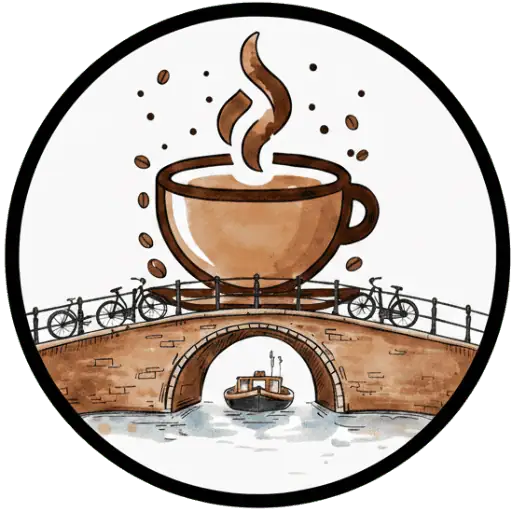Rotterdam Centrum has been breathing coffee since 1650. From Van Nelle to third‑wave micro‑roasters, the district unites history, innovation and sustainability. Visit hotspots like Man Met Bril and Manhattan Coffee Roasters and feel how community and flavor keep pushing the city forward every day.
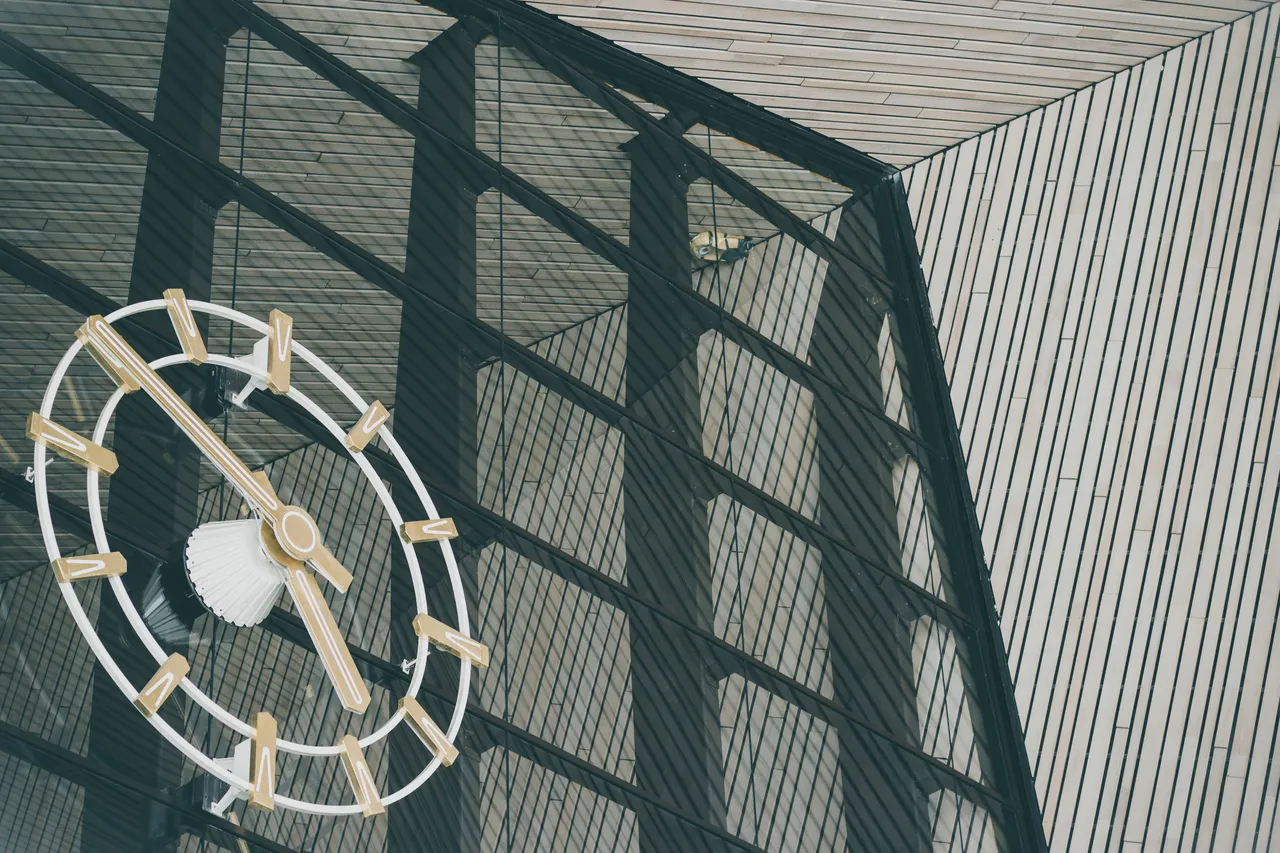
Roasters in the Center
Coffee Bars in the Center
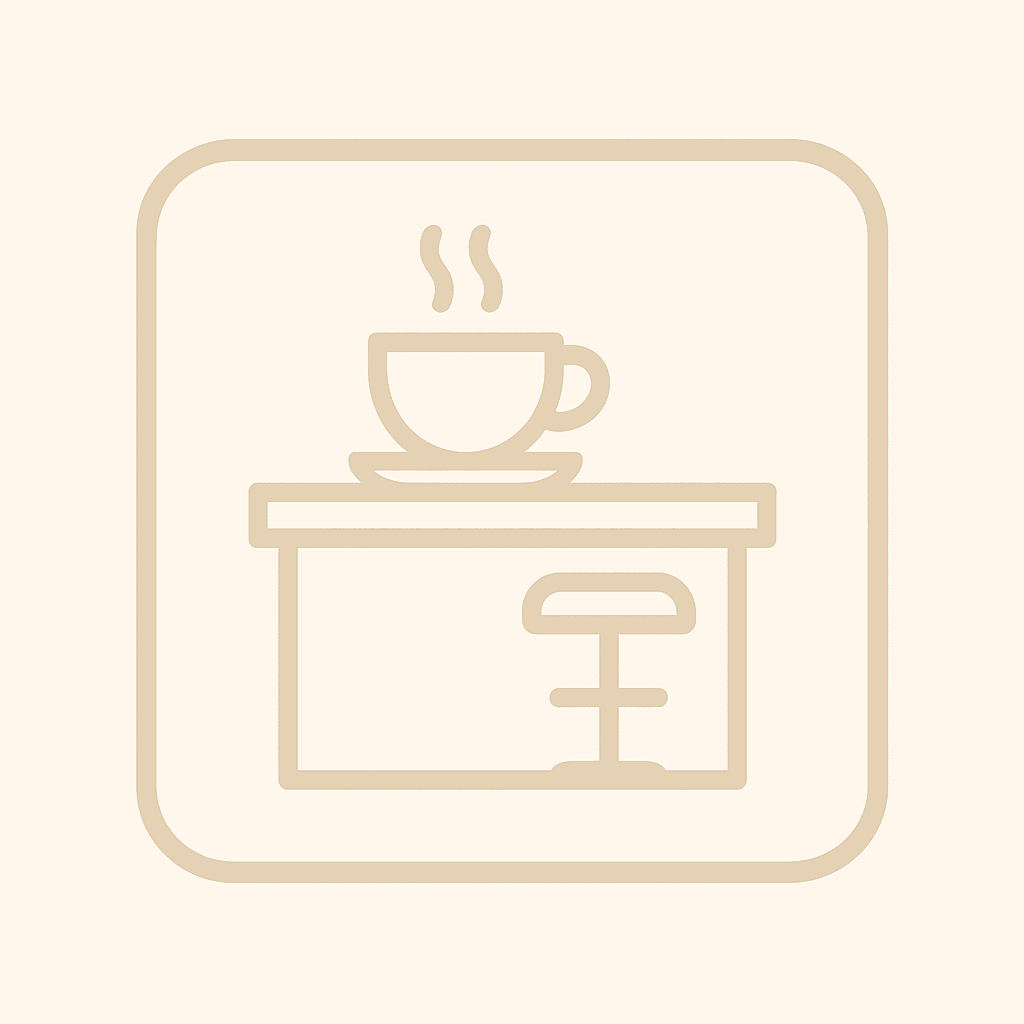
Lilith Coffee
Lilith Coffee in Rotterdam biedt een gezellige sfeer met biologische ingrediënten en lokale koffie. Geniet van diverse brunchgerechten in dit populaire café.

Harvest Cafe & Bakery
Harvest Cafe & Bakery in Rotterdam biedt specialty koffie, ambachtelijke lekkernijen en een focus op duurzaamheid. Geniet van de relaxte sfeer en kwaliteitsproducten.

By Jarmusch (East, Het Industriegebouw)
By Jarmusch biedt een unieke diner- en koffiebeleving in Rotterdam, met de focus op kwaliteit, duurzaamheid en een gezellige sfeer voor de lokale gemeenschap.

SOCOCO koffiebar W70
SOCOCO Koffiebar W70 in Rotterdam biedt hoogwaardige koffie, duurzame handel en een platform voor sociaal ondernemerschap en creatieve professionals.

Café Unfiltered
Café Unfiltered in Rotterdam biedt specialty coffee en een smakelijke brunchkaart in een minimalistische setting. Het café is populair bij zowel lokale bewoners als toeristen.

Dune
Dune Café in Rotterdam biedt kwaliteitskoffie, kombucha en een uitnodigende sfeer. Het café is een ontmoetingsplek voor de lokale gemeenschap en koffieliefhebbers.

Five Five Five
Five Five Five in Rotterdam is dé ontmoetingsplek voor fietsliefhebbers en koffiegenieters, met specialty coffee en sociale fietstochten.

Wakuli Meent
Wakuli Meent biedt Rotterdamse koffieliefhebbers een unieke ervaring met hoogwaardige koffie, ethische inkooppraktijken en een gezellige sfeer.

Chocolatte Markthal
Chocolatte Markthal biedt een unieke ervaring van chocolade en koffie in Rotterdam, met kwaliteitsproducten en een gezellige sfeer in de Markthal.
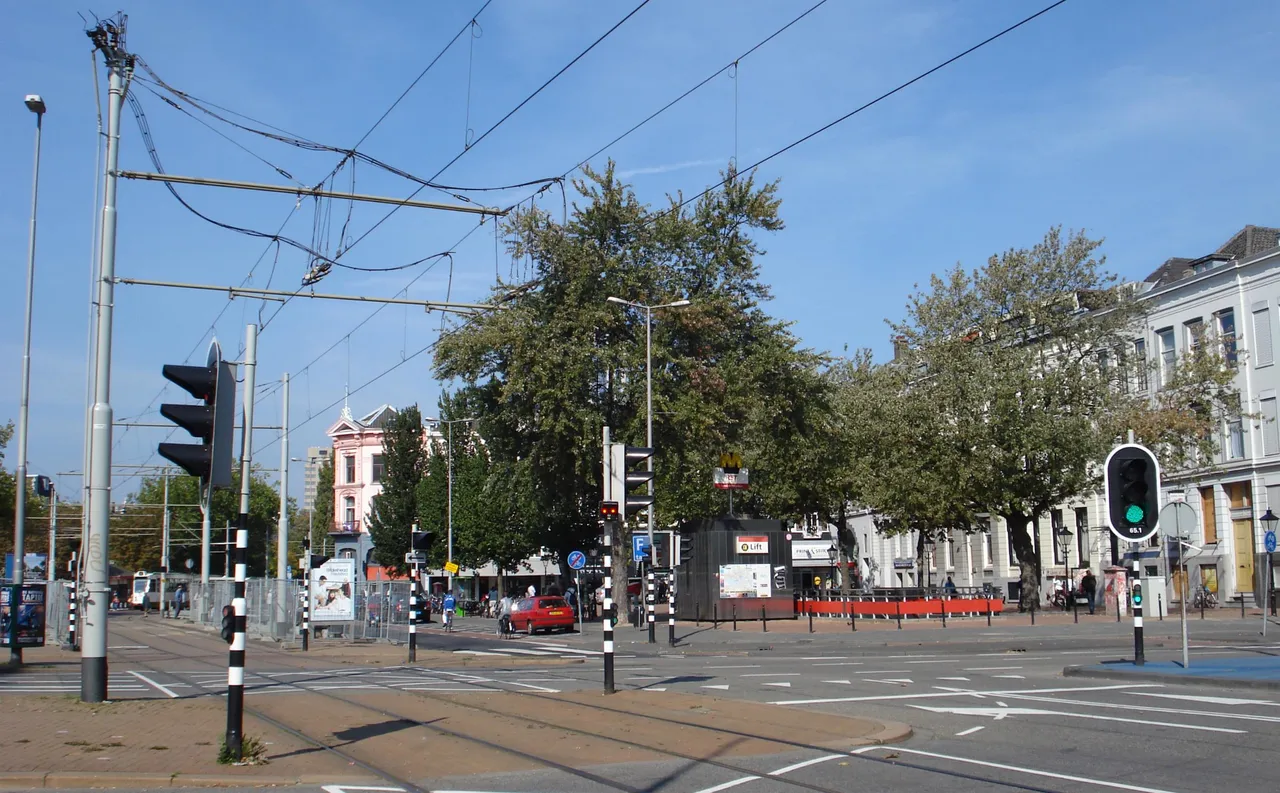
Heilige Boontjes Grand Café
Heilige Boontjes is een grand café en branderij in Rotterdam. Specialty coffee wordt gekoppeld aan een tien maanden werk-leertraject voor jongeren, met eigen blends, mobiele koffiekar, partners en ethische inkoop voor duurzame uitstroom.

30ML Rotterdam Centrum
Franchisevestiging aan de Nieuwe Binnenweg met eigen branderij. Espresso, filter en pour-over, plus all-day breakfast. Seizoens- en signaturedranken wisselen, buurtgerichte sfeer met klein terras en koffie-educatie op merkniveau.

Ripsnorter Espresso Bar
Compacte coffee-first bar met competitie-DNA. Dagelijks roterend menu, Bloody Ripper met ultrazeldzame bonen, proeverijen en cuppings maken topkwaliteit toegankelijk voor liefhebbers en professionals.

Sound Kitchen – Espressobar
Sound Kitchen in Little C koppelt specialty koffie aan persoonlijke audio. Proef espresso van Manhattan Coffee Roasters, drink Jing Tea, werk laptopvriendelijk en bezoek luisterevents, met zicht op de Euromast en focus op beleving.

NINE BAR espresso
NINE BAR is een espresso-first bar in het MaHo-kwartier met terrassen aan beide zijden, bonen van Giraffe Coffee en ruime melk- en vegan opties. In het weekend is laptopgebruik niet toegestaan.

Cafecito Meent
Cafecito Meent combineert een minimalistische high-end bar met snelheid en vakmanschap. Eigen branderij, twee smaakprofielen, handbrewing als podium, duurzame keuzes en een loyalty club stimuleren terugkerende gasten.

Anne&Max Rotterdam Korte Hoogstraat
Ruime stads-huiskamer met mezzanine in het centrum. Biologische gerechten, specialty coffee in espresso en filter, seizoensdranken en workshops. Laptopvriendelijk, geschikt voor ontbijt, lunch, high tea en langer verblijf.

Brasserie Barclay
Brasserie Barclay is een klassieke stadsbrasserie in Rotterdam. Espresso vormt de basis, seizoenslattes zoals “Apple Pie Latte” zorgen voor variatie. Lokale ingrediënten en buurtinitiatieven krijgen aandacht, terwijl transparantie over inkoop beperkt blijft.

Café @Home
Café @Home in Rotterdam biedt espresso van Santas Koffie, een rustige werkplek en een vergaderruimte met pakketten en onbeperkt koffie. Eigenaarschap en community staan centraal.

Daily at Donner
Daily at Donner is een compacte minimarkt en koffiecorner in Boekhandel Donner, met Man Met Bril-koffie en producten van Rotterdamse makers. Focus op gemak, korte ketens en laagdrempelige samenwerkingen.

Hopper Coffee Rotterdam
Hopper Coffee in Rotterdam verenigt bakkerij en specialty coffee onder één dak. Eigen branderij, vers brood en meerdere zetmethoden, met ruimte voor seizoensdranken.

The Tosti Club Rotterdam
Familiegedreven formule uit 2015 koppelt tosti-ambacht aan een espressogedreven koffiemenu met custom blend. Focus op inloop, snelheid en seizoensspecials, met lokale leveranciers en pragmatische stappen tegen verspilling.

The Tea Lab
The Tea Lab is een theehuis in Rotterdam met specialty coffee van Giraffe Coffee Roasters, vegetarische en vegan opties, gratis wifi en ruimte voor high-tea en events.

Broodje Aap Lunchroom
Broodje Aap is een buurtgerichte lunchroom in Rotterdam met een strak espresso-aanbod en Zuivere Koffie. Verhuur voor events, delivery en Too Good To Go versterken bereik, community en duurzaamheid.

Parqiet
Parqiet is het parkcafé in Het Park naast de Euromast, met espresso van Man Met Bril, lokale leveranciers, ruim terras en opties voor bijeenkomsten tot circa 50 personen.
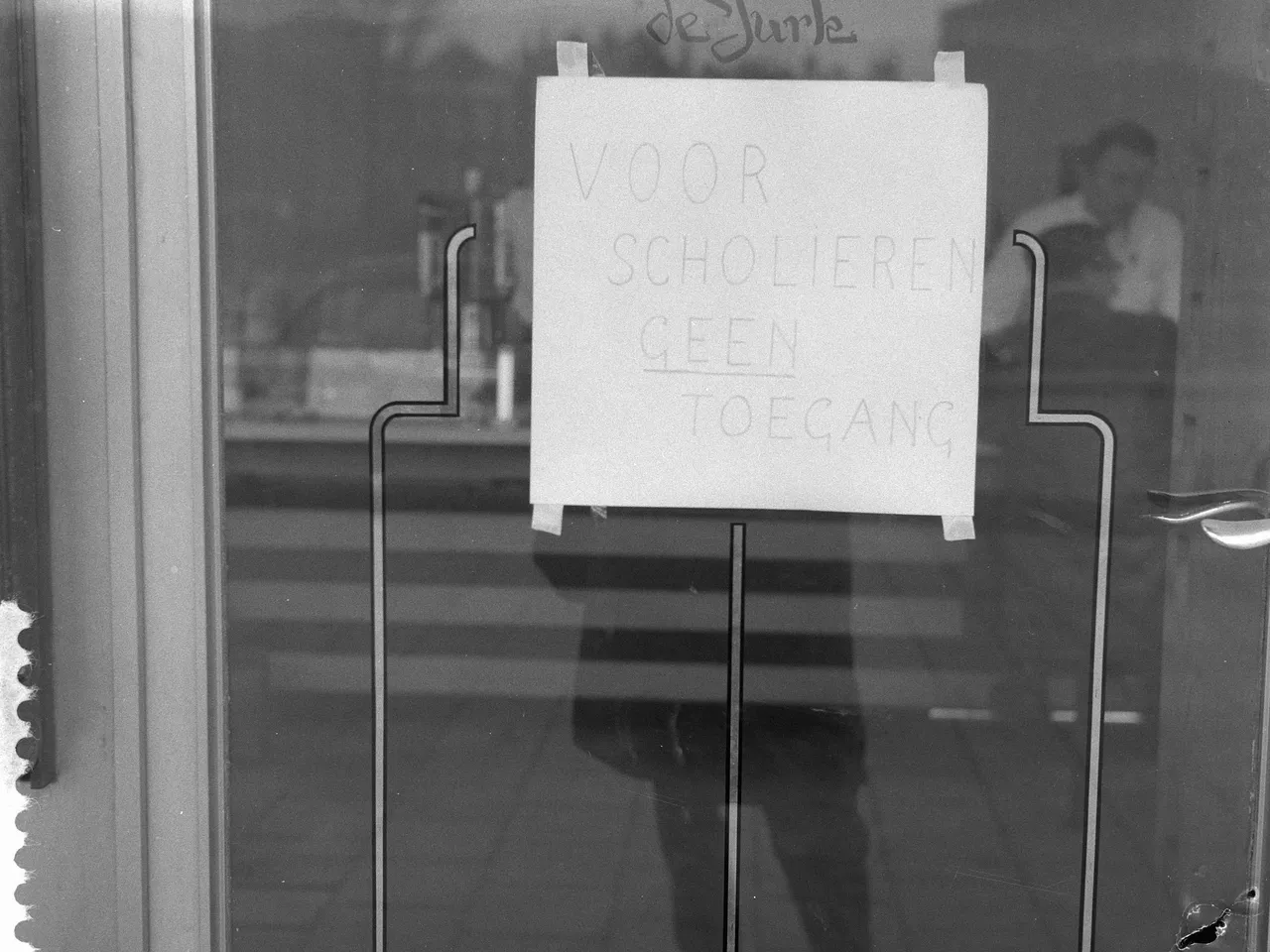
Nice
Nice is een compacte stamkroeg in Rotterdam Centrum met espresso van A Matter of Concrete, gastbranders zoals Bonanza, een snelle lunchkaart en communitymomenten zoals cuppings. Oat milk staat standaard op het menu.

Simon Lévelt Koffie & Thee – Meent
Simon Lévelt Meent is een speciaalzaak in het centrum van Rotterdam met vers gebrande koffie, losse thee en tastings. Focus op single-origin, slow coffee, workshops en duurzame, biologische keuzes.

Rozey
Rozey Rotterdam koppelt een vaste prijsformule aan plantaardig dineren en espressogerichte koffie. Biologische Smit & Dorlas en havermelk staan centraal, met ruimte voor groepen, events en transparante, duurzame leverancierskeuzes.

Wereldmuseum Museumcafé
Het Museumcafé in het Wereldmuseum is een toegankelijke lunchroom met espresso van Santas Koffie, lokale producten zoals brood van Jordy’s Bakery, een ruim terras en uitzicht. Focus ligt op comfort, doorstroom en duurzame leverancierskeuzes.

Sherlock’s Place
Bij Sherlock’s Place, tegenover de Laurenskerk, komen koffiebar, boutique en Monin-vlaggenschip samen. Peeze-koffie, creatieve signatures, plantbased opties en kleinschalige events maken dit centrumadres een knusse spot voor buurt en bezoekers.

Hotel âme Café
Hotel âme Café koppelt Japandi design aan specialty koffie van Shokunin. Espresso met La Marzocco, V60 filter en handgemaakte keramiek, ingebed in een boutiquehotel en conceptstore in hartje Rotterdam.

BY AMI Café
BY AMI Café vertaalt een urban bistroverleden naar een all-day espressobrunch in het centrum. Met Peeze-koffie, een roze Dalla Corte en fotogenieke signaturedranken is de zaak geschikt voor to-go, langere tafels en events.

Vlaamsch Broodhuys – Meent
Vlaamsch Broodhuys Meent is het eerste Baker’s Café van Rotterdam, met ambachtelijk desembrood, Bocca fairtrade huysblend en een volledig espressomenu. High Tea en de Huyskamer maken het een gastvrije plek voor groepen.

Joy! espresso and more
Joy! espresso and more is een kleine espressobar in het centrum van Rotterdam, met Single Estate koffie, huisgemaakte baksels, all day ontbijt en een laptopvriendelijke sfeer, vlak bij de Kubuswoningen.

WAFFEL
WAFFEL in het Rotterdamse centrum serveert verse croissantwafels met specialty espresso en matcha. Compact concept voor snelle service, geopend door Heel Holland Bakt winnares Mercedes Roggen op Binnenwegplein 2.

WAFFEL
WAFFEL in het Rotterdamse centrum serveert verse croissantwafels met specialty espresso en matcha. Compact concept voor snelle service, geopend door Heel Holland Bakt winnares Mercedes Roggen op Binnenwegplein 2.

Kuub Coffee
Kuub Coffee is een micro specialtybar onder de Kubuswoningen met V60 filterkoffie, espresso en seizoensdranken. Rotatie van lokale branders en persoonlijke service staan centraal.

Crave Coffee & Bakery
Crave Coffee & Bakery is een volledig plantaardige bakkerij en specialty koffiebar in Rotterdam, met espresso-gedreven menu, lokale branders en dagelijks in huis gebakken patisserie.

Allerhande Café (Albert Heijn Lijnbaan)
In-store supermarktcafé bij Albert Heijn Lijnbaan: espressobased drankjes, cappuccino en latte, seizoenssiroopopties en acties. Focus op gemak en snelheid, minder nadruk op handmatige zetmethoden of single origin.
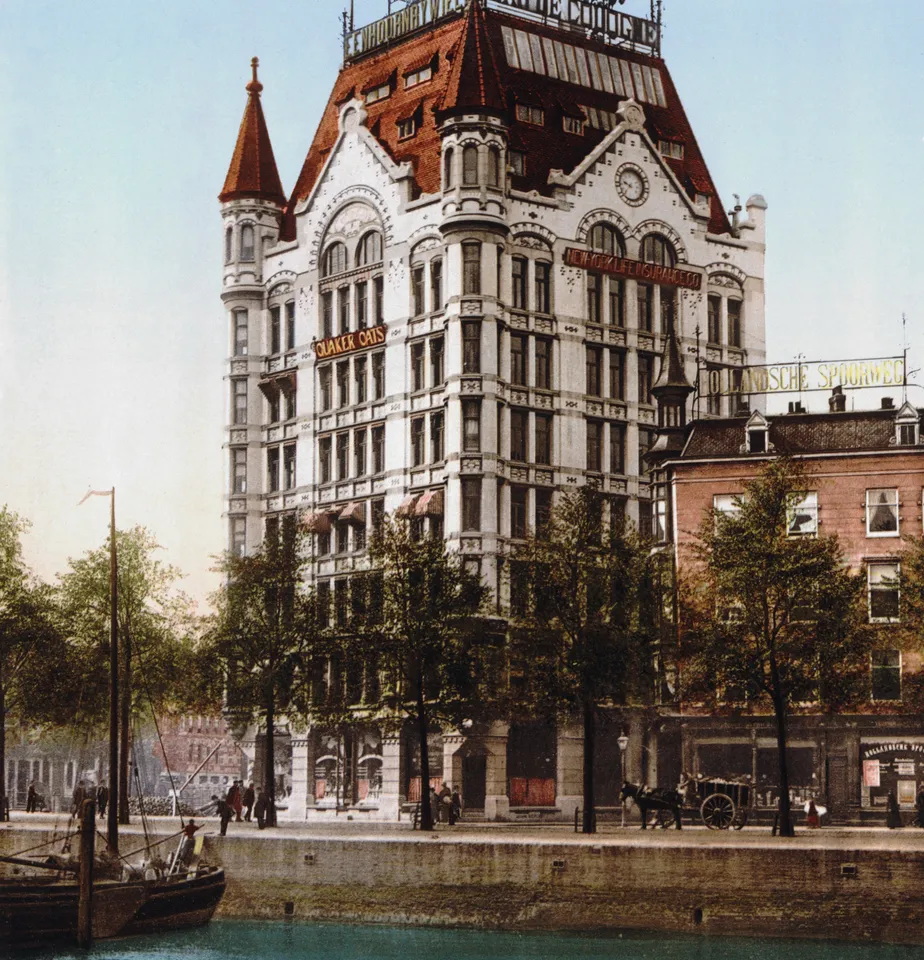
Het Witte Huis
Grand-café in het historische Witte Huis koppelt erfgoed aan all-day hospitality. Serveert specialtykoffie van Dino Coffee, richt zich op buurt en bezoekers, met muziekavonden en borrels, terwijl details over specifieke zetwijzen publiek niet benoemd zijn.
Giraffe Coffee Bar & Academy
At Giraffe Coffee Bar Academy on Rotterdam's Hoogstraat, craftsmanship, hospitality and sustainability come together. Baristas roast their own beans, provide SCA trainings and organise coffee and cycling events that connect the community and put flavour centre stage for the city and its visitors.
More about Centrum
Rotterdam Centrum: the heart of Dutch coffee culture
Historical roots
Specialty coffee hotspots
- Man Met Bril Koffie: opened the first coffee hotel on the Linker Rottekade in 2025, complete with roastery and barista training.
- Manhattan Coffee Roasters: has been roasting electrically since 2017 and expanded in 2023 to a 1,000 m² factory.
- Schot Coffee Roasters: based in a 1929 factory building and a pioneer of Rotterdam’s specialty coffee era.
- Hopper Coffee: won the title Best Coffee Bar in the Netherlands in 2012 thanks to consistent espresso and its own bakery.
- Giraffe Coffee Roasters: combines micro‑roasting on Hoogstraat with a cycling boutique and international shipping.
Rituals and community
- Coffee time: communal break around 10:00 and 15:00 with coffee and a cookie.
- Koffie verkeerd: milk‑rich favourite that delivers a smooth taste and comforting feel.
- Coffee with apple pie: classic that symbolises cosiness in cafés and living rooms.
- Latte‑art throwdowns: competitions, such as the Zero Waste edition, that showcase creativity and reduce waste.
- Heilige Boontjes: social enterprise where young people learn barista skills and make a fresh start.
Market and consumer trends
Sustainability across the chain
- RotterZwam: has already recycled one hundred thousand kilos of coffee grounds to cultivate oyster mushrooms in an old swimming pool.
- Electric roasting: Manhattan Coffee Roasters avoids gas and reduces emissions with a fully electric Typhoon roaster.
- Deposit cup: at Rotterdam Centraal a system of reusable cups is bringing stations towards zero disposables by 2040.
- Fair beans: local roasters buy fair‑trade or direct‑trade and build long‑term relationships with farmers.
